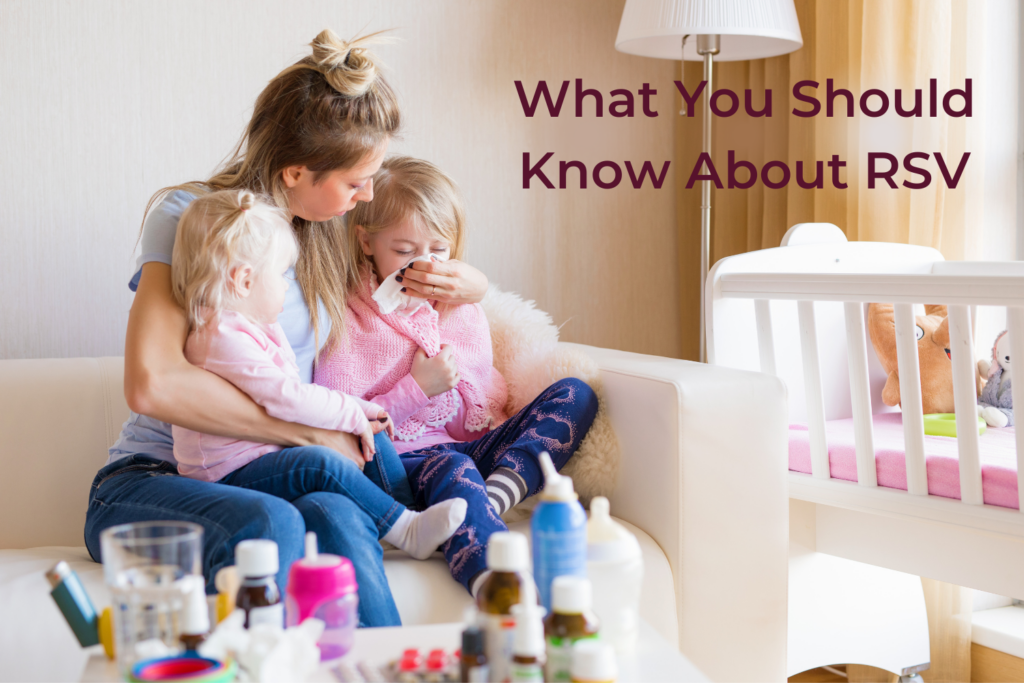RSV Season is Here! What You Need To Know


Long before Coronavirus became a household name—and a household lockdown—Respiratory Syncytial Virus (RSV) topped the list of viruses that we worried about for our youngest children and older and immunocompromised people. After years of waiting, we now have several effective new tools to protect our most vulnerable from this infection.
For most people, RSV presents as a common cold, albeit a nasty one. The usual symptoms include cough, runny nose, congestion and a low-grade fever. This is a widespread infection, with most children contracting the virus before age two, and reinfection even as an adult is to be expected. It’s highly contagious, with each case infecting five to 25 other people through respiratory droplets spread through coughing, sneezing, or speaking, and contact with the virus on hands or hard surfaces can occur for many hours after contact.
Most people get through RSV with moderate but tolerable symptoms, but in infants and young children, RSV infection is sometimes much more severe. It can lead to a more concerning condition called bronchiolitis, in which fluid in the small airways makes breathing difficult and can lead to respiratory distress in babies. In fact, RSV infection is the leading cause of hospitalization for children under five in the United States. Premature babies and infants in the first few months of life are especially vulnerable.
Signs to bring your infant or child in to be examined are sustained fast breathing, noticeable difficulty breathing or retractions, which look like a visible tugging on the skin above the collarbones, between the ribs or under the sternum (breastbone) while breathing in. Other concerning signs that should prompt medical attention include a fever beyond or with onset after the first 3-4 days of the illness, lethargy or apneic spells, which are periods of several seconds where the baby stops breathing. Any fever over 100.4°F (38°C) in a baby younger than two months should always prompt immediate medical attention.
The good news is that this year there are new immunizations that protect infants and older adults from RSV infection. Abrysvo is an RSV vaccine recommended for pregnant women in their 32nd to 36th weeks during RSV season, which creates antibodies that pass to the fetus, protecting babies from RSV for the first six months after birth. There is also now a single shot antibody immunization, Beyfortus, for babies under eight months old in their first RSV season, or for children up to 19 months old with conditions that make them susceptible to worse outcomes with RSV. There are also two new RSV adult vaccines available, Abrysvo and Arexvy, which are recommended for those over 60. Check with your provider for guidance on protecting yourselves and your family from RSV, or contact your local public health department.
We now have effective and generally available protection from this virus for the first time, so consider RSV prophylaxis for the youngest and oldest in our community. Stay safe and take good care of yourselves.
